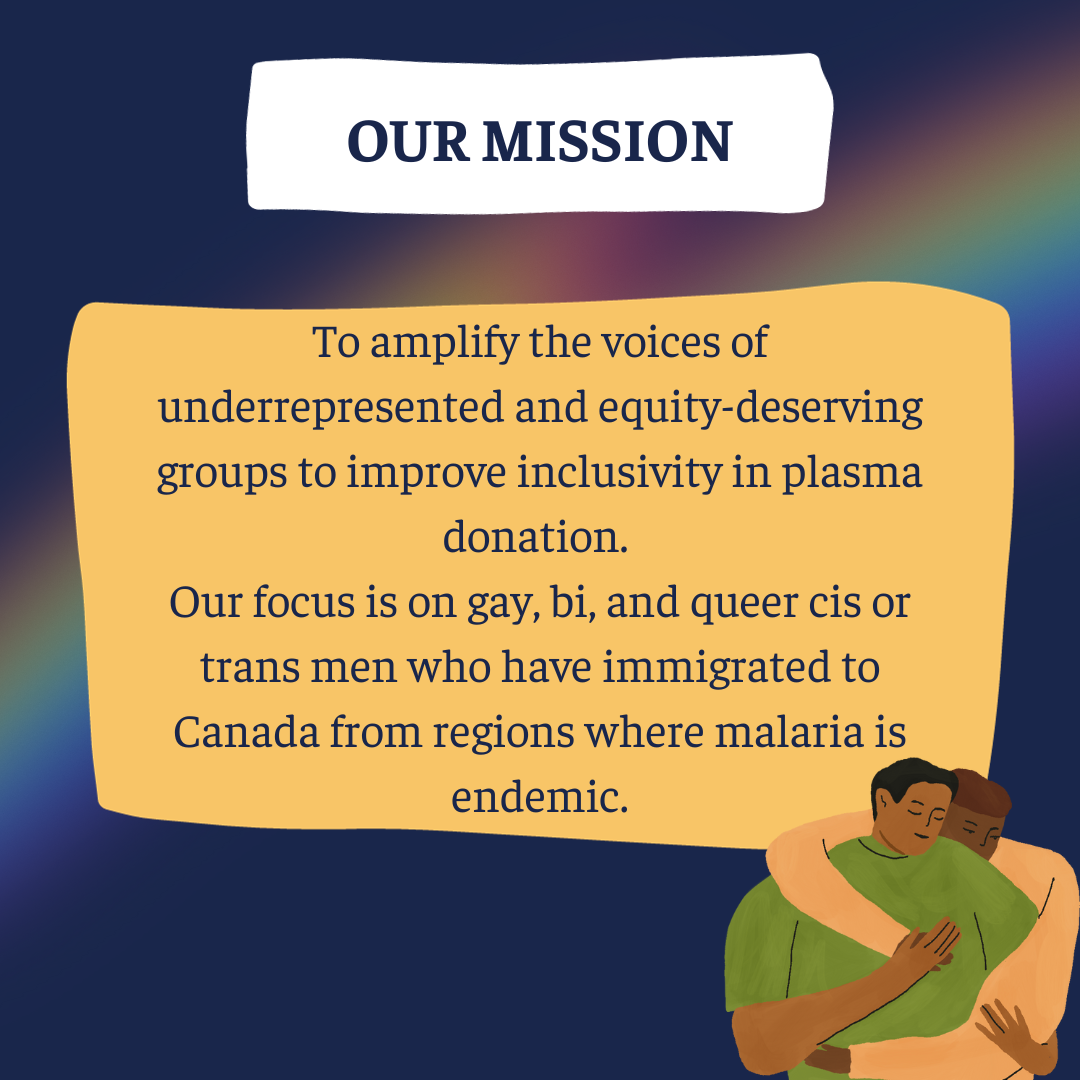PLASMA AND DONATION POLICIES
Plasma is the protein-rich liquid part of blood that helps other blood
components circulate throughout the body. It is the foundation of a well-functioning immune system and is used to treat people with immune deficiencies, bleeding
disorders, kidney and liver diseases, burns, surgery, and many cancers. Currently in Canada, we do not collect enough source plasma (plasma that is collected on its own, not extracted from a whole blood donation) domestically, despite there being a growing need. Therefore, to meet demand, Canada ends up purchasing >80% of its plasma products from international markets.
Some important steps have been taken to address this need. In 2023, more plasma donation centres have opened, creating more opportunities to donate and making it more accessible for donors around Canada. Additionally, in September 2022, Canadian Blood Services changed their screening methods for blood and plasma donation, shifting from time-based deferrals for men who had sex with another man to
sexual behaviour-based (SBB) screening, enabling more people with diverse sexualities to donate these much-needed health resources. However, simply being allowed to donate now does not undue the decades of harm and stigma that these policies have perpetuated. This is why our research seeks to involve the voices of the people impacted by exclusionary donation policies every step of the way.
EXPANDING PLASMA 1.0
When we began our work, men who had had sex with another man within the past 3 months were unable to donate blood or plasma, even if they had had sex with their monogamous partner. Canadian Blood Services sought to implement a pilot program in London ON and Calgary AB, which would allow more men who had sex with men to donate source plasma (but not whole blood). We built a network of 14 local advisors from the two cities who have directly influenced the direction of our research, ensuring materials produced were well-suited to the community. Then, we interviewed 17 gay, bisexual, and other men who identified as having sex with men (gbMSM) in London and 10 in Calgary to explore how acceptable they considered the proposed pilot program, and to understand what barriers and facilitators they felt would influence their decision to donate plasma under such a policy. Furthermore, we interviewed staff at the plasma donation centres in each city to better understand their needs and what barriers/facilitators they envisioned coming with implementing the pilot program. We also interviewed donors from the two cities who had regularly donated plasma for at least a year, most of them for years, to get a better sense of what drives their behaviour. We used our findings to advocate to Canadian Blood Services regarding how they could adapt to better support newly eligible donors, including recommending EDI training for staff so they felt better prepared to answer donors' questions.
EXPANDING PLASMA 2.0
Our current work expands on our previous work by looking at intersecting marginalized communities (gay/bi/queer men who have immigrated to Canada from places where malaria is endemic) to understand their perspectives on donating plasma and to provide our support to more under-represented Canadians.
For updates on this project, check out our study
website and connect with us on
Instagram and
Facebook. For more information about opportunities to get involved, email
plasma@ohri.ca.

Expanding Plasma 2.0 Project Team
- PIs: Justin Presseau, Maman Joyce Dogba, Paul MacPherson
- Co-Is: Dana Devine, Jennie Haw, Kelly Holloway, Samantha Meyer, Sheila O'Brien, Mandeep Sekhon, Risa Shorr, Elisabeth Vesnaver, Vivian Welch, William Bridel, Terrie Butler-Foster, James Demers, Mindy Goldman, Nolan Hill, Richard MacDonagh, Glenndl Miguel, Shaffina Mohamed, Shane Orvis, Wil Osbourne-Sorrell, Taylor Randall, Kyle Rubini, Tony Steed
- Lived Experience Advisory Partners (LEAP): Taim Bilal Al-Bakri, Andrew Clapperton, Mark Greaves, Maximillian Labrecque, Marco Reid
- Project coordinator: Emily Gibson
- Clinical research associate: Cole Etherington
- Post-doctoral fellow: Manavi Maharshi
- Research assistant: Amelia Palumbo
Funded by: Canadian Institutes of Health Research (CIHR)
Publications To Date
